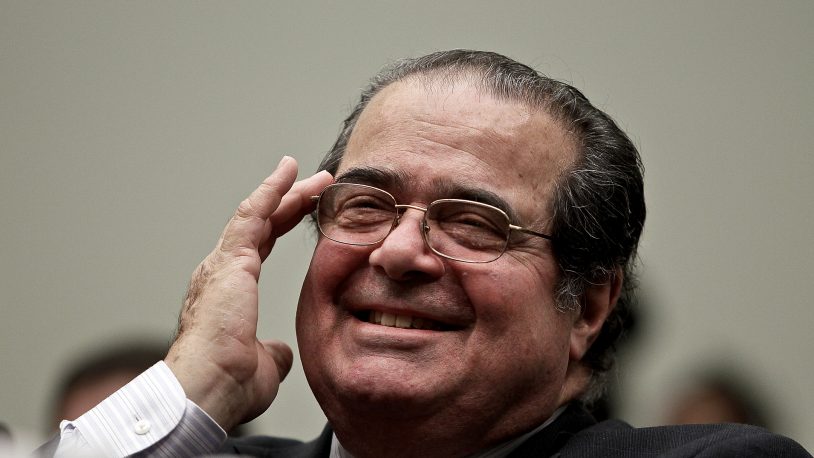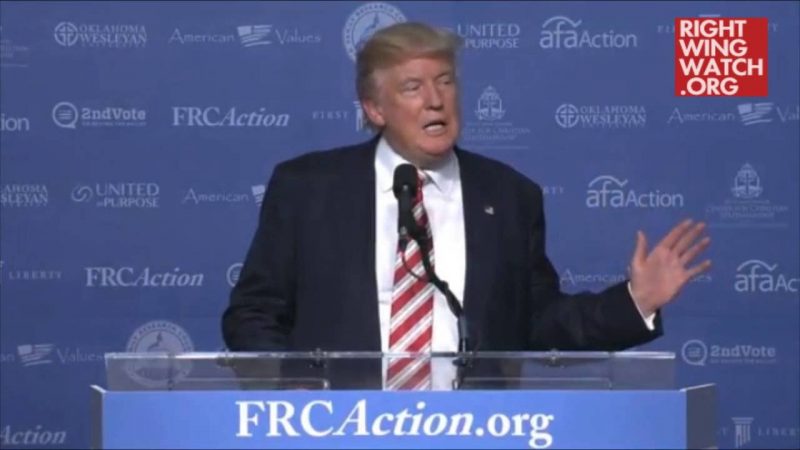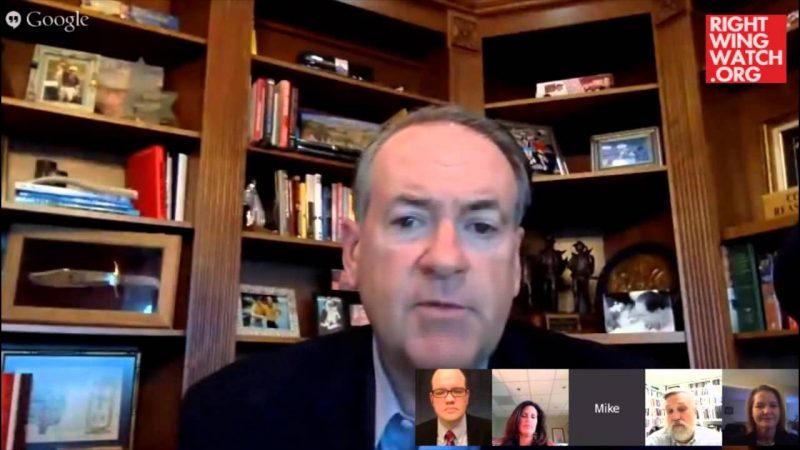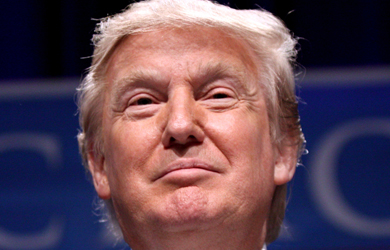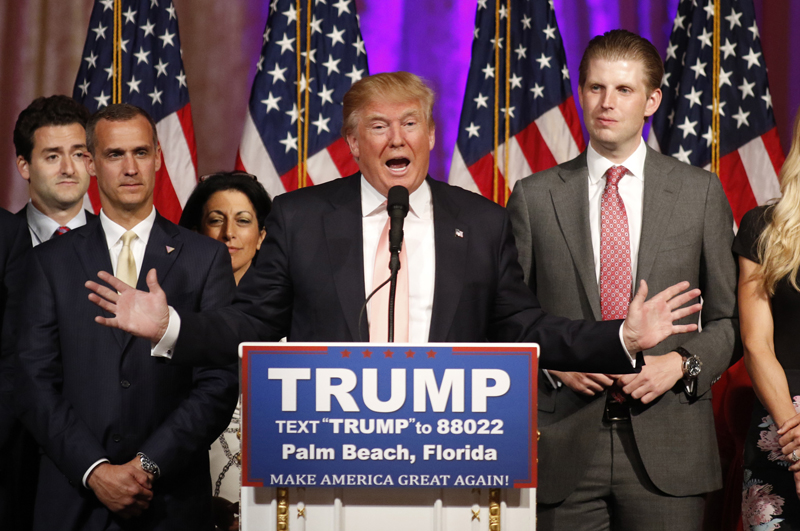Donald Trump has used the prospect of Supreme Court nominees as a way to get the support of the far right conservatives who run and fund the Republican Party. He has promised to outsource the selection to ideological groups like the Federalist Society, and he pleased Republicans with his promise last March to appoint “someone as close to [the late Justice Antonin] Scalia as I could find.” He repeated this promise in August during an interview with Sean Hannity on Fox News, promising that in his selection, “I want to get as close to Scalia as I can.” And at the second presidential debate with Hillary Clinton on October 9, he said he was “looking to appoint judges very much in the mold of Justice Scalia.”
This is chilling for all Americans across a broad range of communities and issues, and especially for the LGBT community. It is perhaps appropriate that Donald Trump would model his next justice on Scalia. The late justice’s unusually venomous, paranoid, divisive, and contemptuous dissents about LGBT equality were at times the judicial equivalent of a Trump campaign rally.
In 1996’s Romer v. Evans, the Court struck down Colorado’s notorious state constitutional amendment that prohibited state and local governments from protecting people from discrimination on the basis of sexual orientation. “Amendment 2” also eliminated anti-discrimination laws already on the books. But only one group of people was barred from seeking the rights and protections available to others, and the court could find no reason for it but animus toward that group.
Justice Scalia’s dissent described Amendment 2 as just “a modest attempt by seemingly tolerant Coloradans to preserve traditional sexual mores against the efforts of a politically powerful minority to revise those mores through use of the laws.” But his dissent in this first major civil rights victory for the LGBT community at the high court wasn’t just a legal analysis disagreeing with the majority. His own animosity, paranoia, and rabble-rousing shone through his words like a beacon … or like Donald Trump’s inflammatory accusations toward populations he and his supporters clearly disdain. He criticized the majority for concluding that animosity towards “homosexuality” (the term used in the opinion) is wrong, and he defended the right of a majority to pass laws against an unpopular minority based on their moral disapproval of that group.
Even worse was how he saw the struggle of LGB people in Colorado to live their lives openly and free from discrimination. He characterized this as a “special right.” And he saw Amendment 2 as a legitimate response by Coloradoans against a small yet wealthy population concentrated in cities and who had “disproportionate political power,” who opposed the traditional morality of the majority, and who had brought their quest for “social endorsement” from New York, San Francisco, LA, and Key West to communities in Colorado.
Scalia’s dissent in 2003’s Lawrence v. Texas (striking down “sodomy laws”) was also revealing—and disturbing. The majority opinion was remarkable in its treatment of gays and lesbians as people, stating what should have been obvious: sexual intimacy for gays and lesbians is just as central to personal autonomy and dignity as it is for heterosexuals. As a result, it implicates the same fundamental constitutional liberties, and moral condemnation is not a sufficient justification for criminalizing it for same-sex couples.
Scalia would have none of it. His dissent described the case not as one about the human act of sexual intimacy (and the consequences for individual liberty that flow from that), but as one about “homosexual sodomy.” He apparently could not conceive that two people of the same sex have sex for the same reasons that two people of the opposite sex do. And he leapt to the defense of voting majorities who consider sex between two men or two women as immoral to punish those men and women through the criminal code.
A decade later, when the Court struck down the misnamed Defense of Marriage Act in Windsor v. United States, Justice Scalia wrote a separate dissent in which he concluded that the court lacked jurisdiction to consider the case in the first place. But then he proceeded to consider the merits anyway. In what might be considered unnecessarily hyperbolic language, he accused the majority of judging opponents of marriage equality to be “enemies of the human race,” “enem[ies] of decency,” “monsters,” and “unhinged members of a wild-eyed lynch mob.” His fury at the majority was palpable.
Similarly, in the Obergefell case, when the court at last recognized that denying same-sex couples the right to marry violates their constitutional rights, Scalia chose to write a separate dissent. He wrote that he agreed with the main dissent (written by the chief justice), but that he wanted to write separately “to call attention to this Court’s threat to American democracy” by deciding the case as it did. Calling it a “judicial Putsch,” Scalia slammed the elitism of the Court and wrote that:
to allow the policy question of same-sex marriage to be considered and resolved by a select, patrician, highly unrepresentative panel of nine is to violate a principle even more fundamental than no taxation without representation: no social transformation without representation.
Essentially, Scalia was saying the court cannot legitimately address whether same-sex couples have a constitutional right to marry because they don’t have a constitutional right to marry. (And yet he and his fellow dissenters did address the question; they just came to a different answer than the majority.) It seems that any opinion on this issue that didn’t agree with Scalia’s was (in his eyes) illegitimate, just as any election result where Trump loses is (in his eyes) illegitimate.
Scalia’s reasoning was circular, but the result would have been the same if his other dissents had been majority opinions: the preservation of as many methods as possible to use the force of government to marginalize, stigmatize, and harm gays and lesbians.
There will surely be cases in the coming years (and perhaps months) at the Supreme Court that will have a profound influence on the rights not only of LGB people but also of transgender people. Donald Trump wants justices “as close to Scalia” as possible. That is a profound threat to every LGBT person in America.
This post originally appeared on the blog of People For the American Way.




